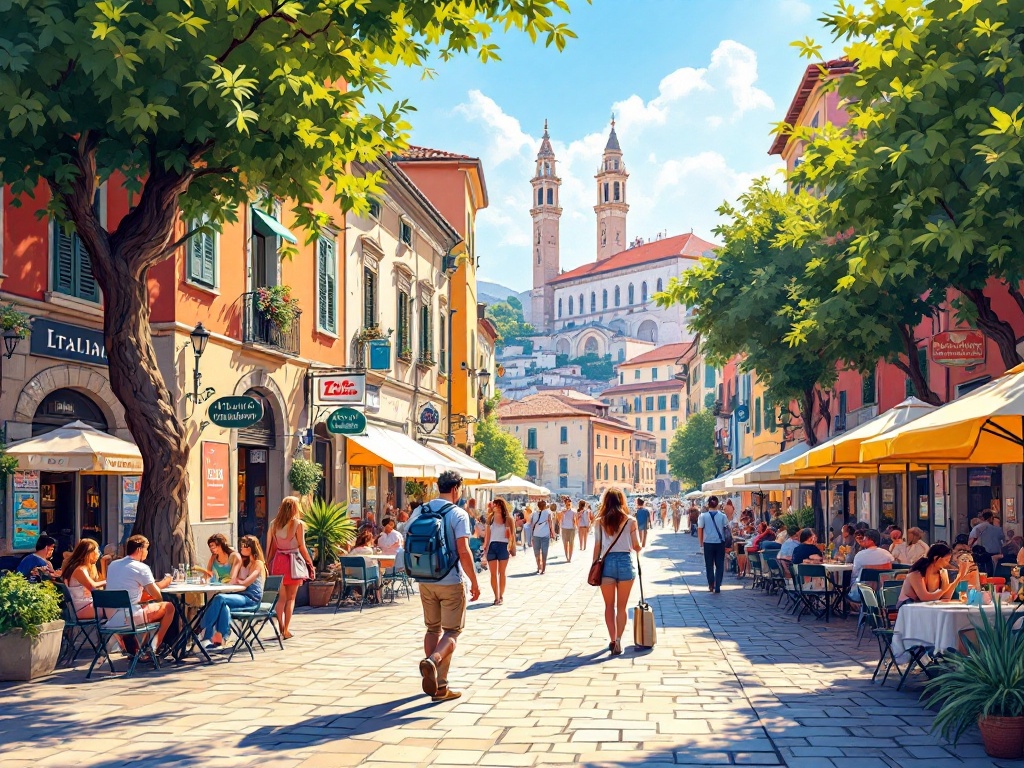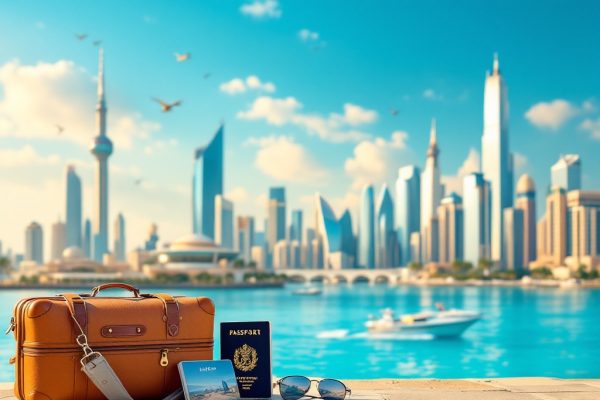Is Italy Safe to Travel to? Check All the Details
Planning a trip to Italy? It’s crucial to be aware of the Level 2 travel advisory, urging increased caution due to petty theft, scams, and potential natural disasters like earthquakes and volcanic activity near Etna and Vesuvius. Learn how to protect yourself from pickpockets in crowded areas, stay informed about safety conditions through local media, and prepare for emergencies by knowing the 112 contact number. Discover essential safety tips and resources to ensure a smooth and secure Italian adventure. Read on to prepare for a worry-free trip!
Important information

- Italy is under a Level 2 travel advisory, meaning exercise increased caution due to petty theft, scams, and potential terrorist threats.
- Be vigilant in crowded areas, secure belongings, and avoid displaying expensive items to minimize theft risk.
- Italy is prone to earthquakes and volcanic activity. Check local news for alerts and be prepared to adjust travel plans. The emergency number is 112.
- Validate transit tickets, be wary of pickpockets on public transport, and consider using official taxis over driving or ride-sharing.
- Consult your doctor about recommended vaccinations and ensure routine immunizations are up-to-date before traveling.
Italy Travel Safety Overview
Italy’s travel advisory is currently at Level 2, advising travelers to exercise increased caution. This moderate risk level suggests potential safety and security concerns, such as petty theft and scams. Furthermore, Italy is prone to natural disasters like earthquakes and volcanic activity. Staying informed by monitoring local media and remaining vigilant, particularly in crowded tourist areas, is highly recommended. Always be aware of your surroundings and take necessary precautions to protect yourself and your belongings.
Understanding the Travel Advisory
The U.S. Department of State has issued a Level 2 travel advisory for Italy, urging visitors to exercise increased caution due to potential safety and security risks. This designation reminds travelers to be more vigilant about their surroundings and take precautions to mitigate potential issues. Petty crime, such as pickpocketing and scams, is a concern. While terrorism remains a possibility, Italy is still a popular destination. Travelers should stay informed by monitoring local media and be ready to adjust their plans if necessary. Prioritize your safety. Here’s a breakdown of key safety considerations for your trip to Italy:
Petty Crime
Be aware of pickpockets, especially in crowded tourist areas. Secure your belongings and consider using a money belt. Be cautious of scams, such as individuals posing as officials or offering unsolicited assistance.
Terrorism
While Italy remains a popular destination, terrorism is a potential risk. Stay informed about current events by monitoring local media and following any guidance provided by local authorities.
Remember to stay informed, be prepared, and prioritize your safety while enjoying your travels in Italy.
What Does Level 2: Exercise Increased Caution Mean?
Italy is under a Level 2 travel advisory due to increased safety and security risks, including potential terrorist threats. Travelers should exercise increased caution and be especially vigilant about their surroundings.
Recommendations from Local Authorities
For everyone’s well-being, consult official websites for local restrictions and heed guidance from local authorities.
Safety and Security Concerns
Italy faces a genuine threat from terrorism, which could strike anywhere at any moment. Potential targets include tourist attractions, transportation centers, shopping malls, and crowded events. While this is a serious concern, petty theft is a far more prevalent issue. Pickpockets and bag snatchers thrive in busy areas and popular tourist destinations. Tourists should also be wary of vehicle theft and scams. Therefore, remain alert, safeguard your possessions, and stay aware of your environment. Here’s how to stay safe:
Safety Precautions Against Terrorism
- be aware of your surroundings,
- report suspicious activity,
- have an emergency plan.
Protecting Yourself from Petty Theft
- secure your belongings,
- be vigilant in crowds,
- avoid displaying expensive items.
Crime in Italy: What Travelers Need to Know
Petty theft, such as pickpocketing and bag snatching, is common in Italy, especially in crowded tourist areas. Be vigilant and keep your belongings secure. Theft from cars is also prevalent, so park in secure locations and don’t leave valuables visible.
After dark, stick to well-lit streets and use reliable transportation. Scams can occur, so exercise caution, particularly in unfamiliar situations. Trust your gut; if a situation feels off, it probably is.
Stay Safe in Italy
- Be aware of your surroundings, especially in crowded areas and on public transport.
- Keep a close watch on your belongings at all times.
- Validate your transit tickets to avoid issues.
Important Reminders
- Beware of fake police officers.
- Never leave your belongings unattended.
- Staying alert can help prevent theft.
Learn about local emergency procedures and evacuation routes.
Stay updated on alerts from official sources and local media.
Prepare an emergency kit containing water, food, a first-aid kit, and copies of important documents.
Create a communication plan.
Memorize the emergency services number: 112.
Pack a flashlight and ensure its batteries are checked regularly.
Getting Around Italy
Italy’s public transport system offers a convenient way to explore the country, but it’s crucial to be mindful of pickpockets. Stay vigilant and secure your valuables at all times. Remember to validate your tickets before boarding, and try to avoid overcrowded vehicles during peak hours.
- Be aware of pickpockets and secure your belongings.
- Validate your tickets before boarding any public transport.
- Avoid overcrowded vehicles during rush hour.
Tips for Drivers
For those who prefer driving, opt for official taxis. Always wear your seatbelt and familiarize yourself with local traffic regulations, as road conditions can be unpredictable. Driving in Italy can be challenging due to traffic congestion and varying road quality, so plan your routes in advance and check traffic reports. Although ride-sharing services are available, exercise caution and avoid sharing rides with strangers.
- Choose official taxis for safe and reliable transportation.
- Always wear your seatbelt.
- Familiarize yourself with local traffic laws.
- Plan routes and check traffic reports due to congestion and road conditions.
- Exercise caution with ride-sharing services and avoid rides with strangers.
Driving in Italy
Be prepared for varying road conditions and drivers who may not always follow traffic signals.
Public Transportation
A reliable alternative with an extensive network. Remember to validate tickets and be mindful of your belongings in crowded areas.
Ensure your routine vaccinations are up-to-date, including MMR and diphtheria-tetanus-polio.
Carry a GHIC or EHIC card to access Italy’s state healthcare system.
Pharmacies offer over-the-counter medications.
Consult an Italian doctor for prescriptions.
Discuss your specific health needs with your doctor before your trip for personalized medical advice.
Become acquainted with Italian laws, remembering that they can vary between cities. Drug-related crimes carry harsh penalties.
- Littering can result in a fine.
- Eating in designated restricted areas can also lead to a fine.
- Disruptive behavior or participating in an organized pub crawl might also result in fines. Showing respect for local customs is essential.
Be mindful of the following:
- Drug offenses: These result in severe consequences.
- Littering: Dispose of your trash properly to avoid fines.
- Designated eating areas: Respect restricted zones to prevent penalties.
- Public behavior: Avoid disruptive actions and be considerate of local customs.
Safeguard your belongings and opt for secure transportation.
Stay vigilant in crowded areas and familiarize yourself with local emergency numbers and nearby hospitals.
Keep up-to-date with local news and adjust your itinerary as needed.
Consider enrolling in a traveler program and always have a backup plan.
Most importantly, respect local laws and customs.
For any emergency in Italy, dial 112. This number connects you to police (Carabinieri and Polizia di Stato), fire services (Vigili del Fuoco), and ambulances (Emergenza Sanitaria).
Prepare for the unexpected by copying important documents and saving emergency contacts.
Establish a communication plan in case you’re separated from your travel companions.
Inform someone at home about your itinerary.
Create a list of emergency contacts, including local authorities, family members, and your country’s embassy.
Memorize Italy’s emergency number: 112.
Understand potential natural disasters like earthquakes and volcanic eruptions, and prepare accordingly.







